Politt spills the beans in the best podcast in ages: "Tadej said: if we win this one too, they’re going to get angry"
CyclingSaturday, 03 August 2024 at 17:11
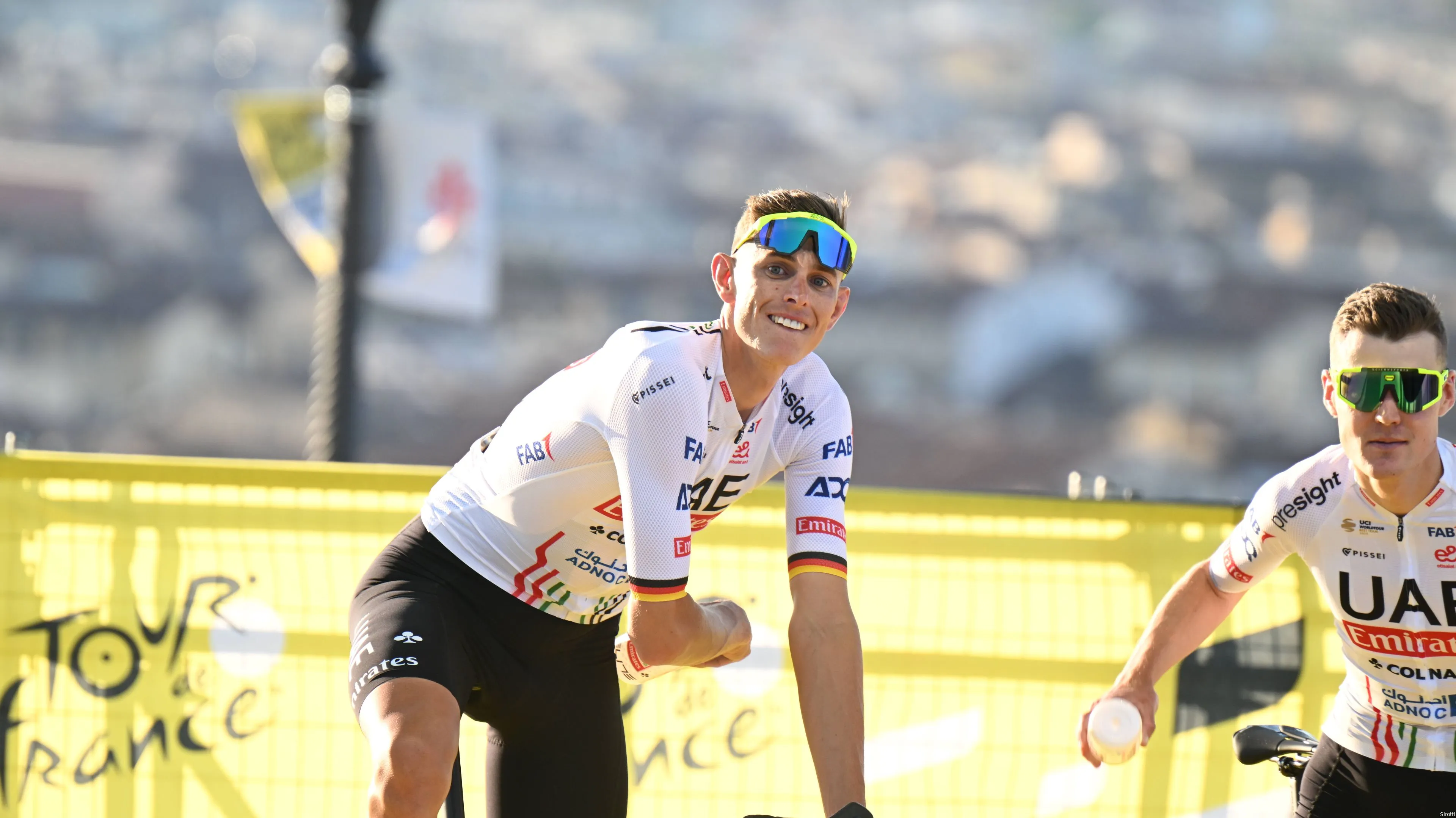
The cycling world is overflowing with podcasts, with riders frequently sharing stories about their lives. From now on, these podcasts will be weighed and measured against the Nils Politt factor. The German rider from UAE-Team Emirates joined the creators of Schlag & Fertig, a German podcast, the day after the Tour de France. In the episode, Politt spoke candidly for over an hour about a wide range of topics. Today's reading recommendation? You’ll find it below.
Politt had just come out of the Tour, where UAE-Team Emirates, with Pogacar, won the overall classification and also claimed six stages. We saw the classics specialist repeatedly hammering away at the front for hours, even in the high mountains. He and Tim Wellens were the only riders for the flat stages. "In recent years, Tadej often found himself alone in the mountains, so it was decided to bring all our best climbers to the Tour. We didn’t want that to happen again. We wanted to put pressure on Vingegaard this time. In the last week over the Col de Bonette, we went so hard that Visma | Lease a Bike had to call a man back from the breakaway because Vingegaard was alone. We still had five riders in the group."
Politt speaks about it with bravado, as UAE-Team Emirates was incredibly dominant. It started right from the opening weekend, where Pogacar wanted to test his main rival Jonas Vingegaard after his crash in the Tour of the Basque Country. "We didn’t know exactly how good Vingegaard would be, but we knew that Tadej was incredibly strong. He had an excellent preparation, with only ten race days before the Giro. He was extremely fit at the start of the Tour. We wanted to put pressure on Vingegaard from the fourth day over the Galibier, just like we did on the second day over the San Luca. How fit is he and what can he do? It turned out he was very fit, and we were in for an exciting Tour. That was great, because I’d also heard the stories from the Giro, where Tadej just rode away and won by ten minutes."
ADVERTISEMENT
Vingegaard was eventually also put in a significant deficit, but the Dane managed to keep it close for at least two weeks. On the eleventh day, he even took a stage win right from under Pogacar’s nose, which everyone saw as a potential turning point. "Tadej looked good at first and wanted to gain time. In the end, that didn’t work out. In such a tough stage, you need to consume 120 grams of carbohydrates per hour, and he didn’t do that. The engine then faltered a bit, as you saw in the sprint. Normally, he is much more explosive," says Politt, who, with UAE, restored order in the last ten days. This was achieved with a sledgehammer in the peloton and Pogacar’s attacking spirit. Vingegaard really needs a team around him. When he’s alone, he becomes very nervous and constantly looks left and right. Then Tadej also comes over to you and says, "See, see? He’s nervous, isn’t he."
Read more below the photo.

Vingegaard won from Pogacar, due to a hunger strike by the Slovenian
ADVERTISEMENT
Criticism of Roglic and Pogacar’s relationship with Evenepoel
It was somewhat expected that the Tour would ultimately become a two-way battle between Pogacar and Vingegaard. However, Remco Evenepoel and Primoz Roglic were also considered favorites beforehand. Roglic, however, withdrew after a crash on the twelfth day. According to Politt, this wasn’t a surprise... "He’s ridden the Tour six times and has crashed out three times. His crashes are, of course, widely covered, and there wasn’t much he could do about this one in the Tour. But there are crashes of his that make us all wonder what he’s doing. In that second week, 160 riders passed through that corner without any issues, and he crashes," referring to Roglic’s crash in the finale of the stage won by Vingegaard.
Politt speaks much more positively about Evenepoel, noting that the Belgian is clearly well-regarded at UAE-Team Emirates. "Tadej and Remco like each other, both on and off the bike. They are friends, which isn’t the case with Vingegaard. Tadej and Jonas respect each other but don’t necessarily like each other. In the peloton, you have friends and riders you’re not so fond of. On our team bus, there’s also a list of riders who are friends and a blacklist. You don’t want to be on that list," he reveals.
In that sense, others were given a chance in the Tour on the penultimate day towards Isola 2000. Pogacar didn’t want to win but ultimately did against his will. "We had prepared for that stage very intensively. The team wanted to win there, but Tadej said in the morning on the bus: We’ve already won four stages. If we win this one too, they’re going to get angry with us." I told him that if you can win a stage, you should just do it. Tadej hesitated, so we sent Marc Soler ahead. But Evenepoel’s team closed it down. I genuinely think Tadej would have let him win if they had been ahead together, but there’s no mercy for Vingegaard.
Read more below the photo.
ADVERTISEMENT
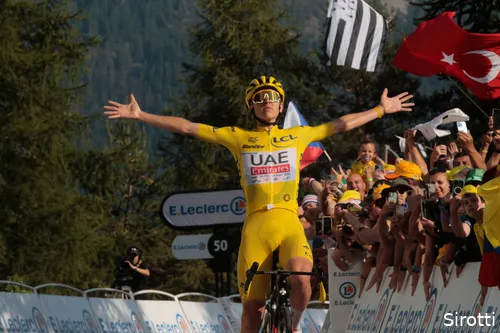
Pogacar won on Isola 2000, because there was no other way
Don’t challenge Pogacar, advises Politt
It was clear: Pogacar was the best. He attacked where he wanted, won where he wanted, and added his third overall Tour victory to his resume. For his teammates, it was a luxury but sometimes also complicated. "With Tadej, you can’t come up with a strategy. You devise a plan, but on the bike, he wants you to go even faster. But you can’t go any faster. "Four minutes, give it everything you’ve got!" But the others in your wheel still have to keep going, you know. Fortunately, I’ve also managed to slow him down a few times."
Politt did this when Pogacar wanted to contest a stage win even in a stage for sprinters. "Tadej saw from the profile of a sprint stage that the finish line was slightly uphill, and he wanted to sprint. At four kilometers from the finish, I saw him moving up, so I told him he needed to keep his legs still. He ended up ninth in a sprint stage, even though we had agreed to stay around 30th position to be able to react to any crashes. He’s always racing, that’s instinct. Sometimes he doesn’t even know why he attacked. I’d like to have his legs for just one day."
"In the winter, we had a media day, and Tadej told the guys he was tired and wanted a rest day," Politt recounts. "I told him we were going to train for 200 kilometers and only the best could handle that... He heard me, and I could see it on his face. He joined us, and I’ve never ridden so fast during training. I was exhausted; he went full throttle all day. That’s when I found out why I had challenged him." A burst of laughter follows. Pogacar is not ordinary, though it’s emphasized that his achievements are not out of this world. "That Tadej went minutes faster than Pantani, you can’t really compare that anymore. Our bikes are now 6.8 kilos, back then they were 9 kilos. All our equipment is tested to ensure it’s the fastest: helmets, socks, base layers... That wasn’t the case before."
ADVERTISEMENT
Politt also quickly addresses the doping question in today’s era. "People don’t realize what we do for it and that what happened in the past is really no longer possible. We have to be available for doping checks literally all day long, and in the Tour, Tadej was tested every day and sometimes even twice a day. They would come into the bus before a stage, where he had to provide a sample. An intrusion into privacy. But the questions are part of it, and we know that too."
For those whose German is as good as ours, you can listen to the entire podcast here:
IDL-productions
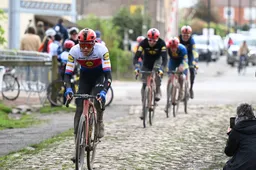
Last year, he was spot on: Lidl-Trek team leader De Jongh names his spring surprise for 2026
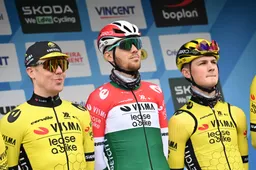
Attila Valter on why he left Visma | Lease a Bike: 'If it is what it is after three years, its not going to change'
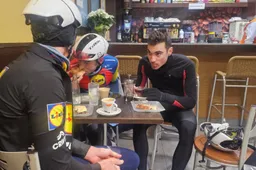
Still in black, but soon in colorful Lidl-Trek jersey: Juan Ayuso praises new environment
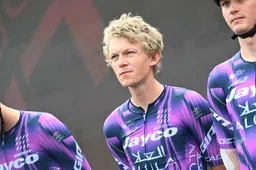
Bouwman not afraid to change at 32 after first disaster year outside of Visma: 'Have to be honest with myself'
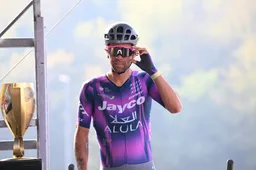
Sanremo, a world title and the yellow jersey: Michael Matthews escaped death - and that reignited his spark
Latest Cycling News
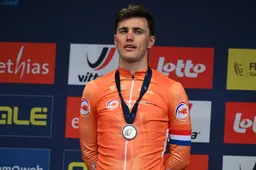
Tour chances of Kooij, role distribution and ambitions: sprint leader Mark Renshaw is delighted after introductions at Decathlon
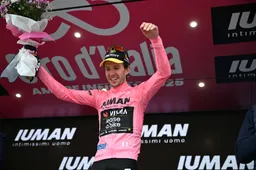
Big surprise: Simon Yates (33) puts an immediate end to his career
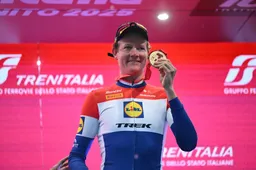
Hoole names difference between "beautiful leader" Mads Pedersen and Mathieu van der Poel
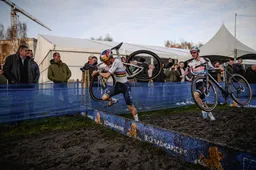
Pidcock keeps focus on road cycling, but cross country in 2026 is a possibility - albeit with a condition
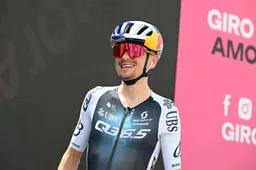
Why Tom Pidcock doesn't take his teammates to the Teide or Sierra Nevada, but at 2,700 meters in Chile
Popular Cycling News

🎥 Pogacar already focused on Milano–Sanremo: World Champion goes all-out on the Poggio

If Vingegaard does the Giro, he’ll face a dangerous Red Bull duo: "Good Giro for a contract"
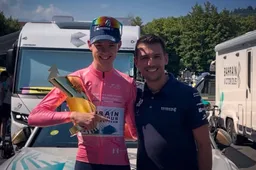
A winner in the Giro and Roubaix: are comparisons between Jakob Omrzel and Tadej Pogacar justified? 'More of a climber'
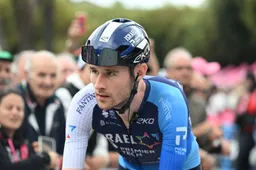
Finally an end to all rumours: Derek Gee has found a new team and signs contract through 2028
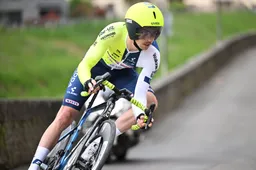
After Gee's transfer announcement, NSN Cycling Team presents two new reinforcements, including trusted Girmay-helper
Latest Comments
- Those events are mental rest for him. Fun, without expectations. *Sagan lost his abilities because he gained weight and got lazy. Pogi will likely retire before that has a chance at happening.Veganpotter14-12-2025
- Ah, the consequences of riding for Israel.Veganpotter11-12-2025
- Pidcock could follow everyone but Pogi while finishing 3rd. No second place rider this season😃Veganpotter16-11-2025
- Now the Palestinian protestors can stop their whining. Trump came to the rescue. So they can now STFU and go back to waving the rainbow flags.raufus15-10-2025
- Cracked the code lol. If it was that easy to 'crack the code' jonny Vegas would be charging up the Kwaremont giving Pog a dose of his medicine. Evenepoel can't match pog on a climb and neither can mvdp. Anything with a half difficult climb and Pog smashes the field. Even on flat(ish)parcours like Roubaix it came down to a mistake and crash by pog to definitively crown mvdp. MSR is the only one that Pog probably won't win.kevpt10-10-2025
- We've seen this movie before. I think Pogacar is doping.DeadBlow10-10-2025
- 👍Bea08-10-2025
- 👌🏻Bea08-10-2025
- What the data doesn't show is how much of an effect drafting had for evenepoel. Pogacar went with del toro at 100km whilst Evenepoel was still in the bunch. Despite the bike changes he still had a lot of assistance getting back to the bunch. Pogacar then rode 60km solo whilst evenepoel rode with Healy/Skjelmose until going solo in thd last 10-15km. Thats ~20% less power / energy requirements for 45-50km. Apples and oranges...kevpt30-09-2025
- 👏👏Bea24-09-2025
Loading